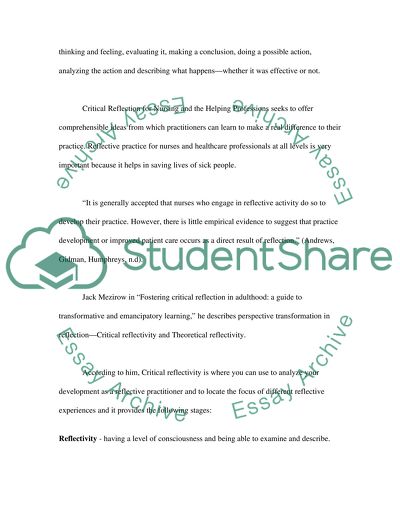Cite this document
(“Is reflection in nursing worth for nurses Essay”, n.d.)
Retrieved from https://studentshare.org/health-sciences-medicine/1507721-is-reflection-in-nursing-worth-for-nurses
Retrieved from https://studentshare.org/health-sciences-medicine/1507721-is-reflection-in-nursing-worth-for-nurses
(Is Reflection in Nursing Worth for Nurses Essay)
https://studentshare.org/health-sciences-medicine/1507721-is-reflection-in-nursing-worth-for-nurses.
https://studentshare.org/health-sciences-medicine/1507721-is-reflection-in-nursing-worth-for-nurses.
“Is Reflection in Nursing Worth for Nurses Essay”, n.d. https://studentshare.org/health-sciences-medicine/1507721-is-reflection-in-nursing-worth-for-nurses.


